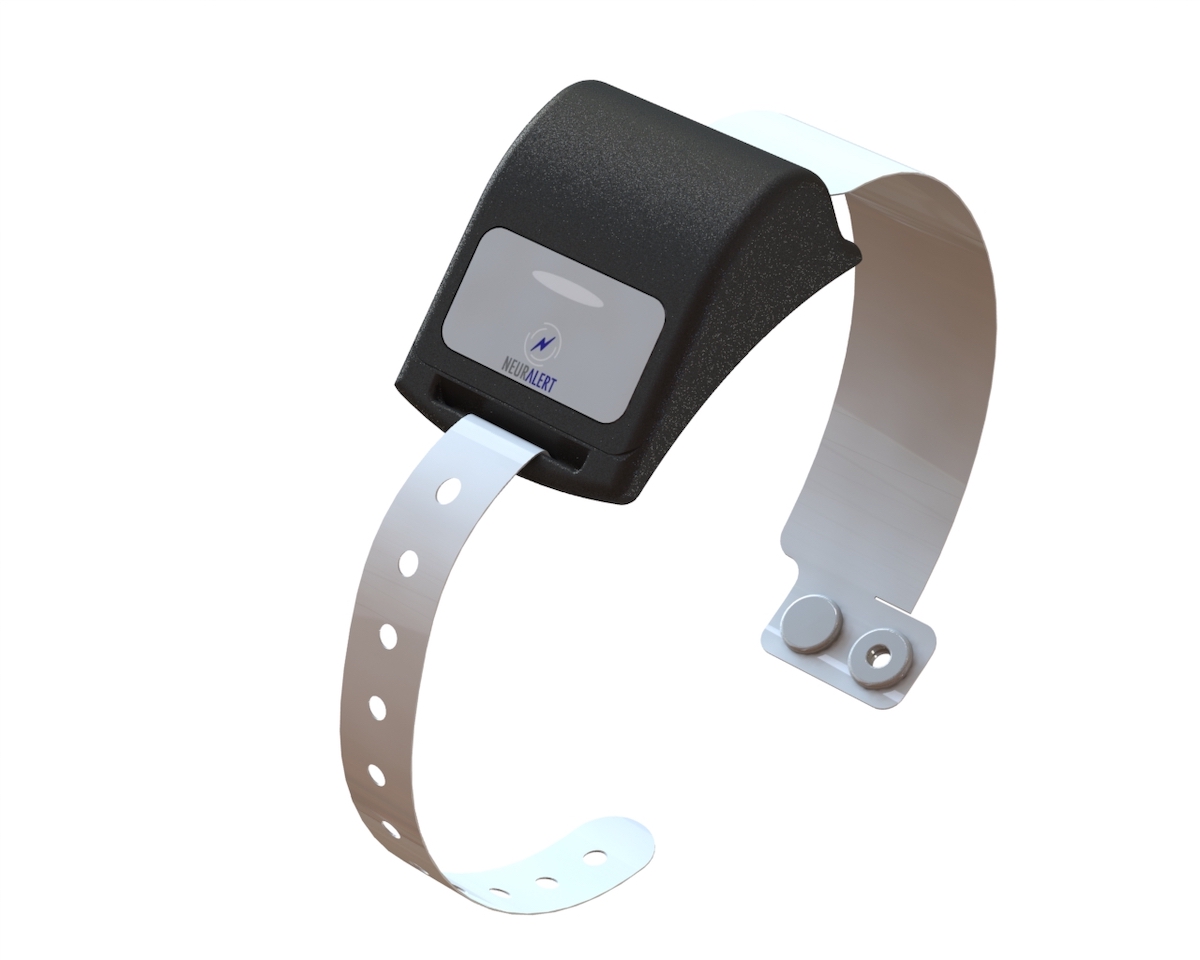Eric Corkhill, CEO of stroke-monitoring device company Neuralert, is no stranger to the medtech field.
Neuralert is the 2019-founded brainchild of two University of Pennsylvania academics, Steven Messé and James Weimer, in the neurology and bioengineering fields. The startup’s wristbands are wearable devices that can detect and alert for the onset of a stroke in about 15 minutes.
Corkhill joined in 2020, bringing about 40 years of experience in healthcare tech sales and leadership. With CTO Det Ansinn, he rounds out the company’s tight team of four. The 2022 RealLIST Startups runner-up is his seventh startup.
“It is not my first rodeo,” Corkhill told Technical.ly, listing out his past leadership experience at companies such as PastRx and Cerner. “But I just really love this product.”
The wearable device looks like the face of an Apple Watch or another smart watch, and uses similar technology to track health stats. But its algorithm maps out asymmetric arm movements or weakness, a tell-tale sign of a stroke, Corkhill said. There are also visual signs of stroke, like a drooping face, but unless someone’s being constantly monitored, it won’t be caught quickly.
Plus, Corkhill said, “if patients are lying in a hospital bed, or they’re sedated, the visual indicators we’ve traditionally relied on aren’t so easily ID’d.”

The company aims to cut down the average detection time of strokes in hospitals from what he says is five hours to 15 minutes, when there’s time to intervene before too much long-term damage. When stroke asymmetry is detected, a secure, text-based alert is sent to attending medical staff, if they’re in a facility, or the wearer can disable the alarm themselves. If not disabled in time, the system automatically notifies medically trained, on-call services agents or the designated “In Case of Emergency” contact through a mobile app to assist.
Right now, the company is targeting the 1.7 million people Corkhill said are at high risk of stroke because of cardiovascular procedures each year; non-acute care facilities like nursing homes are another target where the device would make a big impact.
Neuralert finished up the University City Science Center’s Launch Lane accelerator at the end of 2021. Corkhill said he took home valuable skills in pitching, articulating value proposition and how to overcome bumps in the road. He’s using some of those skills now, as the company is fundraising for a $1.5 million seed round.
Most of that will be spent on the company’s 2022 goals, which include getting prototypes in March and a Food & Drug Administration clinical trial at the University of Pennsylvania Health System. After the FDA process, the team will begin a Series A to bring the product through manufacturing and to the market. The device previously received breakthrough designation with the FDA in August 2021, allowing for speedier development and review by the agency.
Out of Corkhill’s many years of experience, he remains excited about continuing work on Neuralert’s device. Amid a day of pitches with investors across the country, he reflected on the potential impact the team could make.
“There’s about 1.2 billion people that are alive right now that are some day going to have a stroke,” he said. “If we can allow them to live full, rich lives and not have to learn how to eat and walk again, that is a great thing.”







